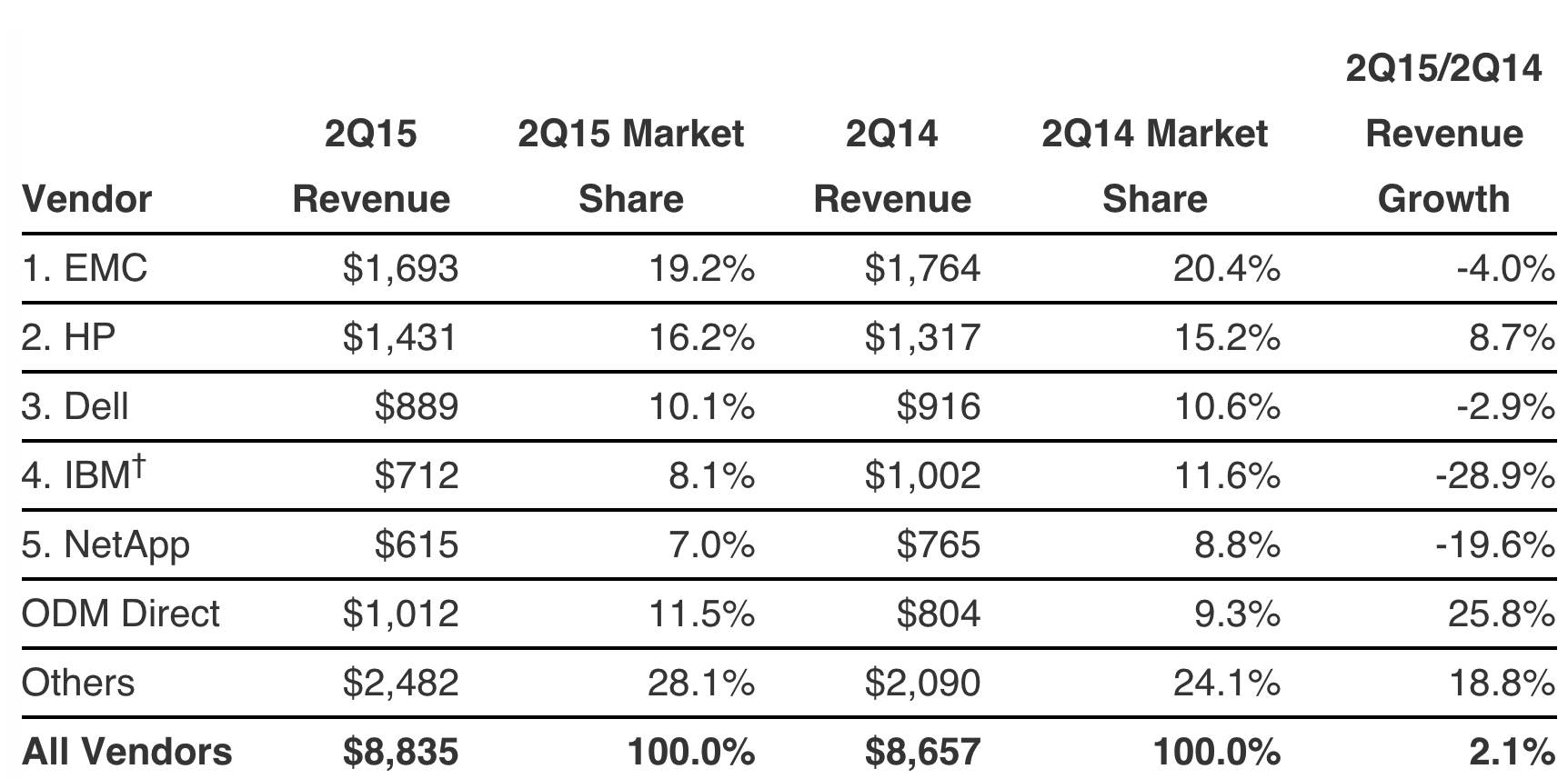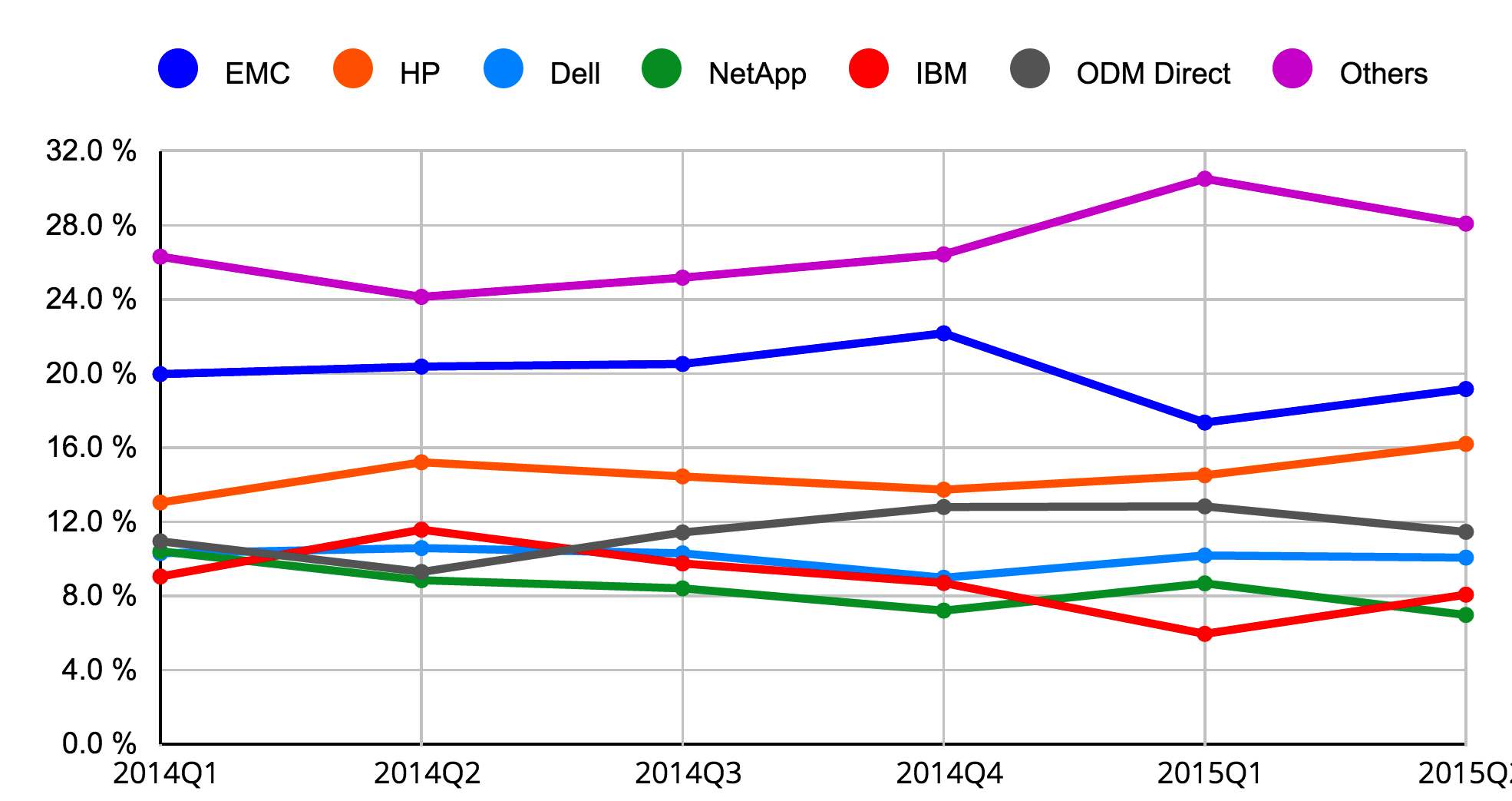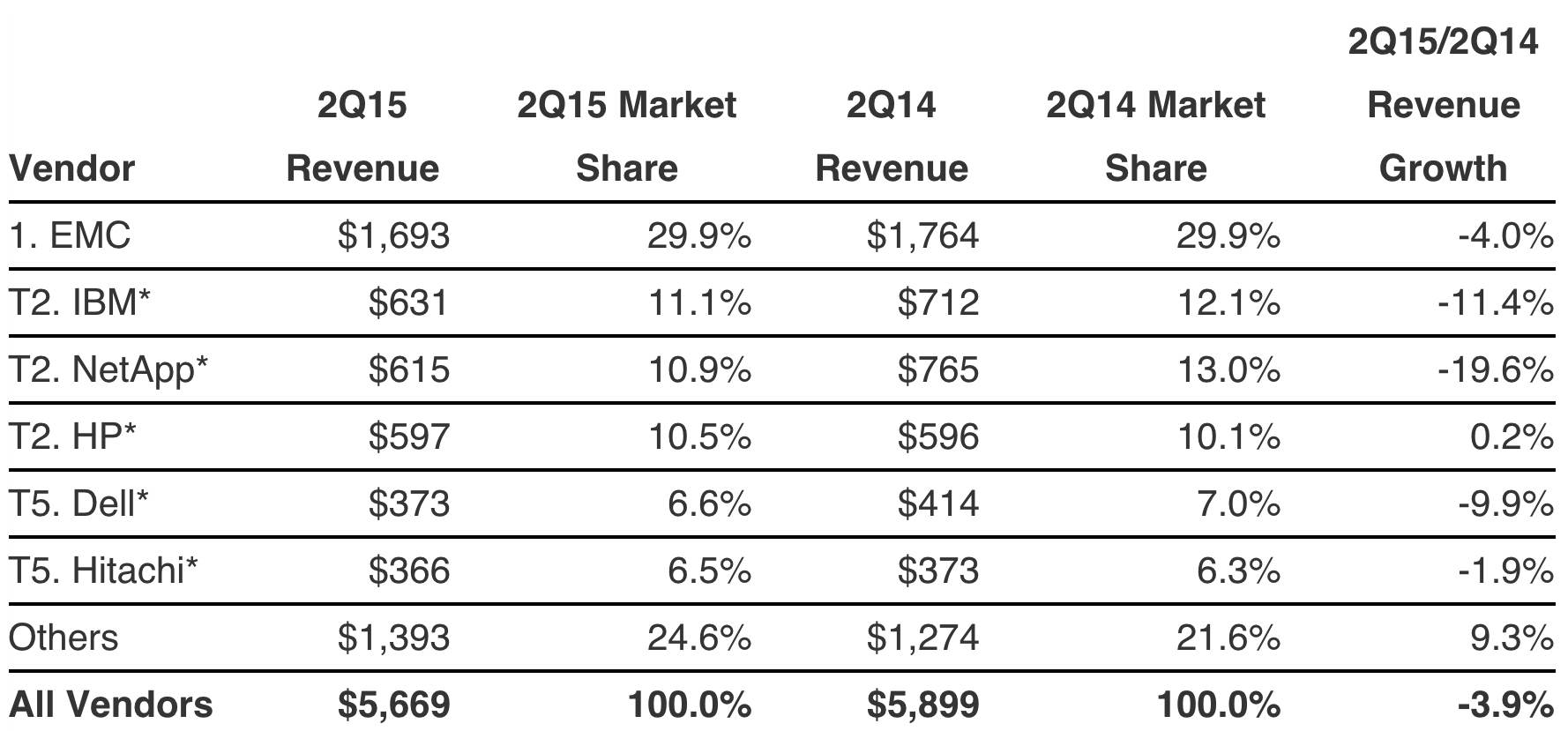All Storage Giants but HP Suffering in 2Q15 – IDC
In enterprise disk storage systems
This is a Press Release edited by StorageNewsletter.com on September 4, 2015 at 3:20 pmTotal worldwide enterprise storage systems factory revenue grew 2.1% year over year to $8.8 billion during 2Q15, according to the International Data Corporation‘s Worldwide Quarterly Disk Storage Systems Tracker.
Revenue growth was strongest within the group of original design manufacturers that sell directly to hyperscale datacenters. This portion of the market was up 25.8% year over year to $1 billion.
Sales of server-based storage were up 10% during the quarter and accounted for $2.1 billion in revenue.
External storage systems remained the largest market segment, but the $5.7 billion in sales represented a -3.9% year-over-year decline.
Total capacity shipments were up 37% year over year to 30.3EB during the quarter.
“Companies are increasingly using new project initiatives and infrastructure refresh as an opportunity to deploy new storage technologies that are able to drive cost and complexity out of their existing storage resources,” said Eric Sheppard, research director, IDC storage. “This is pushing critical investment dollars towards technologies like cloud-based storage, integrated systems, software-defined storage, and flash-optimized storage systems at the expense of traditional external arrays.”
2Q15 Total Disk Storage Systems Market Results
EMC finished in the top position within the total worldwide enterprise storage systems market, accounting for 19.2% of all revenues in 2Q15. HP held the number 2 position with 16.2% of spending during the quarter. Dell accounted for 10.1% of global spending. As a collective group, storage systems sales by original design manufacturers (ODMs) selling directly to hyperscale datacenter customers accounted for 11.5% of global spending during the quarter.
WW Total Disk Storage Systems Market, 2Q15
(revenue in $ million)
 (Source: IDC Worldwide Quarterly Disk Storage Systems Tracker, September 3, 2015)
(Source: IDC Worldwide Quarterly Disk Storage Systems Tracker, September 3, 2015)
† Note: IBM’s 2Q15 revenue excludes x86 servers due to the sale of that business to Lenovo.
WW Total Disk Storage Systems Market, 1Q14-2Q15
(shares based on revenue) (Source: IDC Worldwide Quarterly Disk Storage Systems Tracker, September 3, 2015)
(Source: IDC Worldwide Quarterly Disk Storage Systems Tracker, September 3, 2015)
2Q15 External Disk Storage Systems Results
EMC was the largest external storage systems supplier during the quarter with 29.9% of worldwide revenues. IBM, NetApp, and HP finished the quarter in a statistical tie* for the second largest ranking with revenue shares of 11.1%, 10.9% and 10.5%, respectively. Dell and Hitachi were also a statistical tie with the two companies earning 6.6% and 6.5% of worldwide external storage revenues during the quarter.
WW External Disk Storage Systems Market, 2Q15
(revenue in $ million)
 (Source: IDC Worldwide Quarterly Disk Storage Systems Tracker, September 3, 2015)
(Source: IDC Worldwide Quarterly Disk Storage Systems Tracker, September 3, 2015)
* Note: IDC declares a statistical tie in the worldwide disk storage systems market when there is less than one% difference in the revenue share of two or more vendors.
Open Networked Disk Storage Systems Highlights
The total open networked disk storage market (NAS combined with non-mainframe SAN) generated $5 billion in revenue during the quarter. EMC maintained its leadership in the total open networked storage market with 32.4% revenue share. NetApp generated 12.3% of revenue within this market segment.
Taxonomy Notes:
IDC defines a Disk Storage System as a set of storage elements, including controllers, cables, and (in some instances) HBAs, associated with three or more disks. A system may be located outside of or within a server cabinet and the average cost of the disk storage systems does not include infrastructure storage hardware (i.e. switches) and non-bundled storage software.
The information in this quantitative study is based on a branded view of the disk storage systems sale. Revenue associated with the products to the end user is attributed to the seller (brand) of the product, not the manufacturer. OEM sales are not included in this study. In this study, HDS sales do not reflect their OEM sales to Sun Microsystems and Hewlett-Packard.













 Subscribe to our free daily newsletter
Subscribe to our free daily newsletter

